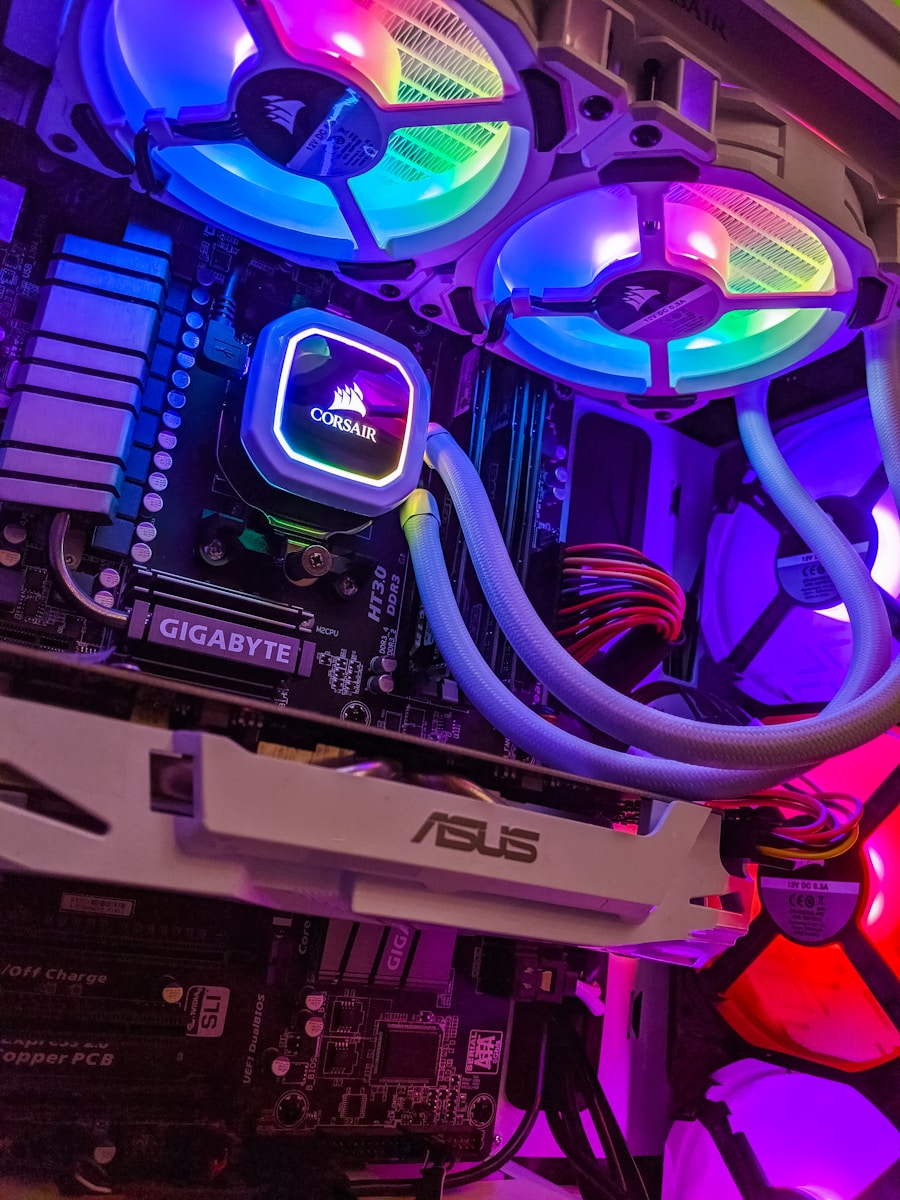Do you want to get your music placed on TV, film, etc…?
Well, then you’ll definitely want to read about the best music licensing companies. I put together this guide to help independent artists find a stock music library and/or sync agency to represent them.
If you’re just getting started, it might not always be easy (or possible) to represent your own music.
That being said, it’ll take a HUGE burden off of your shoulders if you manage to partner up with one of the companies I’ll be recommending today.
HOWEVER, I don’t want to send you out there without preparing you…
I’ll be explaining the difference between exclusive and non-exclusive music licensing. I’ll also be making the distinction between stock music libraries and sync agencies.
Once you understand that, you’ll be ready to move on!
If you have any questions, feel free to ask them in the comments. Okay, let’s get started…
- Exclusive vs Non-Exclusive Music Licensing
- Stock Music Library vs Sync Agency
- 1. Audiosocket and ASX
- 2. Pond5
- 3. Melodicloud
- 4. Artlist
- 5. Marmoset
- 6. Epidemic Sound
- Music licensing companies I DON’T recommend
- Summary: Best music licensing companies for independent musicians
Exclusive vs Non-Exclusive Music Licensing
Before signing anything, you need to familiarize yourself with these terms…
Whenever you distribute your music, you’re directly (or indirectly) signing a contract. For example, you’re granting DistroKid a NON-EXCLUSIVE license to your music whenever you use it to release music.
In that agreement, you also agree to get paid “x amount” whenever your music is used.
When it comes to stock music libraries and sync agencies, it’s very similar.
The difference is that these entities are also granting licenses to your music on your behalf. To be more specific, they’re granting COMMERCIAL licenses to your music.
Now, some of these music licensing companies want to stand out by “monopolizing” your music.
That’s why some of the stock music libraries/sync agencies only offer EXCLUSIVE contracts (sometimes both). It also facilitates the music licensing process for bigger clients.
So, what’s the risk with exclusive music licensing agreements?
You’re essentially transferring your rights (or most of them at least) and the music you’re signing off CANNOT be licensed by anyone else.
However, the exclusive music licensing company CAN sell non-exclusive licenses to your music.
In other words, even if you decide to go exclusive, the same track can also appear on more than one commercial, TV show, etc… BUT, if that company doesn’t do its job, you’re stuck with them!
It’s much less of a risk to go non-exclusive because you can have the same music represented by multiple different parties. Though, more representation isn’t always better.
It’s also important to ask important questions about your contract…
- Which rights am I signing off (if any)?
- How long is the term of the contract?
- How much % of my royalties are they keeping?
- Do I get a % of the sync fees or not?
It might seem tedious, but make sure to READ the terms of your contract before signing!
That’s the basics though.
Each contract, whether it’s exclusive or not, is different.
Just understand that you will be giving up a significant portion of your revenue when working with music licensing companies. Let’s just make sure it’s a good deal!
Now, let’s talk more about sync agencies…
Stock Music Library vs Sync Agency
You might already be familiar with stock music libraries, but what about sync agencies (or agents)?
If we compare exclusive music libraries to sync agencies, they’re almost identical.
For example, both will actively be pitching your music to potential clients (music supervisors, ad agencies, etc…). However, that’s the case for both exclusive AND non-exclusive sync agencies.
When it comes to non-exclusive music libraries, they’re definitely not pitching your music.
In other words, you’ll still need to do most of the work yourself!
So, are there advantages to having a sync agent represent your music vs an exclusive music library?
YES. Although you’ll still be giving up a percentage of your earnings with a sync agent, the main advantage is that you’ll actually be collecting sync fees.
Those can range from 1,000$ – 100,000$ depending on the type of placement!
With exclusive music libraries, they’ll usually keep 100% of the sync fees (there are exceptions though).
In regards to royalties, it could go either way with sync agents.
Maybe they’ll just take a percentage of your sync fees or maybe they’ll also take a cut of your royalties. If you’re working with an exclusive music library, it’s guaranteed that they’ll be digging into your royalties.
Lastly, you’ll also keep most of your rights (if not all of them) when working with a sync agency.
That being said, I personally prefer the sync agency as an independent artist.
We’ll definitely be looking at some today, so make sure to keep reading!
We’re getting into the recommendation now, I think you’re ready…
1. Audiosocket and ASX
If you’re willing to wait 3 months, Audiosocket will definitely listen to your music!
It’s first on my list because it’s one of the few music licensing companies that’s truly taking care of independent artists and making music great again.
Audiosocket is actually somewhat of a hybrid between a stock music library and a sync agency. That’s because they offer both exclusive (ASX) and non-exclusive deals (Audiosocket).
However, you’ll have your music pitched and represented with either.
You’ll also get to keep a decent portion of the sync fees with Audiosocket and ASX.
Here’s a breakdown of the deal for each…
- Audiosocket (non-exclusive): You keep 25% of the sync fees and publishing royalties and 100% of the writer’s royalties.
- ASX (exclusive): You keep 50% of the sync fees and backend royalties.
It might seem like you’re giving up a lot, but you’ll be in good hands if you get your music accepted.
If you’re interested, you can submit your music HERE (you need to have 4 original tracks).
2. Pond5
Pond5 is one of the only stock music libraries that isn’t solely royalty-free (although it kind of is).
It’s definitely possible to earn royalties from the music you license on Pond5. However, this may actually decrease your sales (royalty administration = more work for impatient music supervisors).
My advice… If you’re using non-exclusive music licensing platforms, just forget about your royalties. You’ll be making much more money upfront with sync fees (although Pond5 keeps 35% of that).
That being said, the cool thing about Pond5 is that it’s pretty much “self-serve”.
In other words, you’re responsible for uploading your music and filling out the important information (metadata, pricing, etc…).
BUT, Pond5 is more like an ocean… With all the music up there, yours will likely get lost in the abyss.
That’s partly because the branding aspect is non-existent on Pond5.
That means you can’t catch someone’s eye with your album artwork. If anything, everything just looks the same on Pond5 (even the titles) so it’s VERY difficult to distinguish yourself.
The one thing that’ll give you the upper hand on Pond5 is having superior metadata. That means optimizing your tracks using the provided client by inputting the maximum amount of detail as possible while being as SPECIFIC as possible.
If you need more information, I wrote a guide on how to license your music on Pond5.
3. Melodicloud
Similar to Pond5, Melodicloud is another music licensing marketplace.
It’s also non-exclusive, “self-serve” and allows you to collect royalties.
The major difference with Melodicloud is that it’s purely dedicated to music licensing. Pond5 deals with pretty much every other type of digital asset including music.
In other words, the people visiting Melodicloud are definitely coming for music!
Another important difference to consider is payment…
You’ll also be able to set your own price on Melodicloud, but they keep 50% of the sync fees you collect.
That’s significantly more than the 35% on Pond5.
However, the licenses on Melodicloud are much more flexible…
- Creator = 9.99$ (YouTube, small projects, etc…)
- Professional = 39.99$ (apps, games, etc…)
- Producer = 199.99$ (TV, film, etc…)
That being said, you can earn a fair amount depending on the type of usage!
If you’re already on Pond5, why not license your music on Melodicloud as well?
You can register for an account HERE.
4. Artlist
I put Artlist on this list because I personally use its stock-footage counterpart; Artgrid. The quality of the footage on Artgrid is PHENOMENAL so I expect no less from Artlist.
However, I’ve heard that Artlist is somewhat less organized then Artgrid.
Either way, it’s the same company. If you want to see what the footage looks like, you can check out my weekly music video/mockup.
If you’re planning to license your music through Artlist though, it won’t be as simple as Pond5. You’ll need to submit your tracks and get them approved.
You’ll also need your own press kit and all the relevant information/media.
For example, you’ll need to provide…
- Metadata
- Artwork
- Artist Profile
The advantage is the platform is much more curated than Pond5.
You’ll actually stand a chance of being found without being lost in a sea of other artists.
Because of the barrier to entry, Artlist is also less saturated than platforms such as Pond5. The catalog is growing quite rapidly considering how relatively new the platform is though.
That could be something to worry about for the future, but for now you still have every reason to use Artlist (especially since you can pull your music at any point).
The only MAJOR disadvantage I see with Artlist is the payoff. It isn’t explicitly stated on their website how artists are paid, but my guess is that they’re not paid much.
The payout model must be similar (although much better) than streaming services.
That’s because the end-user pays 199.99$ for a yearly subscription of unlimited licenses. My guess is that your payout is calculated based on the amount of users and the amount of times your tracks are checked out.
That’s just based on my experience with Artgrid.
I often wondered how the filmmakers got compensated and that’s what I came up with.
You have nothing to lose by submitting though. Even if your music gets accepted, you can still submit to other non-exclusive music licensing companies since Artlist is NON-EXCLUSIVE.
5. Marmoset
Before going any further, I just want to mention that Marmoset isn’t accepting any new submissions at the time of writing. I will update this article if the situation ever changes, but they are basically BACKED UP with submissions.
Assuming that submissions are open though, Marmoset is great!
In terms of pricing, it’s MUCH better than Pond5 and Artlist. I really like how the platform sells the end-user licenses based on the size of their project which isn’t usually the case on most non-exclusive music licensing platforms.
That basically means that your music will fetch a higher price.
The actual percentage that Marmoset takes isn’t stated, but my assumption is that it’ll be around 50%.
I think it’s much more worth it because of the overall quality (and reputation) of their platform.
Much like Artlist, you’ll need to have all your branding material on hand (artwork, metadata, profiling, etc…) because they’ll be the ones administering it for you.
There’s also a barrier-to-entry like Artlist, so your tracks will need to be up to par.
In my opinion though, the catalog is much better curated than Artlist’s so you’ll have a much better chance of standing out. You’ll also have a better chance of getting placements!
Out of all the music licensing companies I researched, Marmoset was the one that appealed to me the most.
It definitely has to do with the pricing model (and the UI/UX, of course).
I think it’s the perfect compromise of independence and proper representation!
6. Epidemic Sound
Lastly, Epidemic Sound is a music licensing company to consider if you’re an independent artist. You’ll need to gain their approval before having your music listed, but that’s part of what increases your odds of standing out.
The only thing I don’t like is their pricing model.
It seems like this platform caters much more to YouTubers and podcasters (the lower-end of the pricing spectrum), so you probably won’t make as much.
However, they do state that they’ll pay you an upfront fee (consideration fee) to have your music in their catalog once accepted. They also split streaming revenue (royalties) 50/50 with you.
That actually sounds like something an exclusive music library would offer you, but fear not…
Epidemic Sound is NON-EXCLUSIVE (although it doesn’t quite make sense to me).
If you were submitting to multiple non-exclusive music licensing companies at once, I’d definitely consider having them on your bucket list.
Remember, you’ve got nothing to lose with non-exclusive deals.
However, it’s worth noting that certain music libraries like Epidemic Sound are more “niched” than others. For example, you’ll realize that they specialize in popular music genres mostly (which means there’s less room for orchestral, rock, metal, etc…).
If you think your music fits the YouTube/podcast vibe though, check ‘em out!
Music licensing companies I DON’T recommend
There are TWO non-exclusive music licensing companies I don’t personally recommend. I’m not saying they’re terrible, I’m just saying I wouldn’t personally use them.
The only one of the two I tried was Songtradr.
For starters, there’s lots of bad news about this company all over the web. I’m not saying all of it is true, but it just shocked me to see how much of it there was. Most of it involved issues with payments (not a good sign).
In short, Songtradr doesn’t have the best reputation.
It’s also not really specialized in music licensing (not like the other companies we covered).
In other words, you won’t have much control over the actual pricing. Songtradr is more of a music distribution service that provides sync licensing “opportunities”.
If you want to pay your bills with music licensing, I don’t recommend Songtradr.
The other music licensing company I don’t recommend is AudioJungle.
AudioJungle is very similar (almost identical actually) to Pond5, but the one MAJOR difference is the pricing. Before recently (very recently), you could only license your tracks on AudioJungle for 19$ and that’s it!
This isn’t the case anymore, but most tracks are still priced around that threshold (some even LESS).
That’s WAY too low in my opinion and let’s not forget that they take 45% as well (+10% withheld tax)!
I also remember the user interface being somewhat dated and that the upload process was much more tedious than Pond5’s (that’s probably changed though). If I had to choose between the two, I’d definitely go with Pond5.
I don’t think it’s worth the hassle to use both.
Once again, there’s nothing inherently wrong with AudioJungle.
I also kept hearing that tracks were rejected WAY more often than Pond5. Most people associate that with the fact that AudioJungle is biased towards certain genres of music.
It’s true, Pond5 has much more variety than AudioJungle.
Summary: Best music licensing companies for independent musicians
Honestly, I found out that there weren’t as many viable non-exclusive music licensing companies as I had hoped. Of course, there are MANY more than the ones I listed in this article, but I had to narrow it down for our needs.
The only truly “self-serve” platform I could recommend is Pond5.
I actually wrote an entire article on using it since that’s where I started.
In regards to the other non-exclusive music libraries we discussed, the best one I found (in my opinion) was Marmoset. It features exclusive tiered pricing while keeping the platform strictly non-exclusive.
If you can get your music accepted, I think Marmoset provides the best conditions to meet your financial needs as an independent artist.
Of course, nothing worthwhile happens overnight (remember that).
My second choice would need to be Artlist because I really like the quality/value this company has been putting out (in regards to footage, anyway).
I also want you to keep in mind what we discussed at the beginning.
At some point or another, you’ll want to start thinking about “giving up” your independence and moving on to exclusive music libraries (once you know your music is commercially viable and you have PROOF), or to start your own music licensing company.
I’ll be writing more articles on starting your own music licensing company and once I do, I’ll be updating this article with the relevant links.
For now though, just focus on getting your music (and yourself) ready.
If you’re not sure where to start, I wrote an entire article running you through the process of getting started in the sync licensing industry.
If you have any questions and/or requests for future content, leave ‘em in the comments!
Sources
https://aristake.com/sync-agents/
https://artists.audiosocket.com/
https://www.melodicloud.com/license-your-music/
https://filmmakerfreedom.com/blog/stock-music-showdown
https://help.pond5.com/hc/en-us/articles/202722493-PRO-Tracks-and-Cue-Sheets-
https://contributor.pond5.com/getting-started/payout-overview/
https://help.author.envato.com/hc/en-us/articles/360000472943




